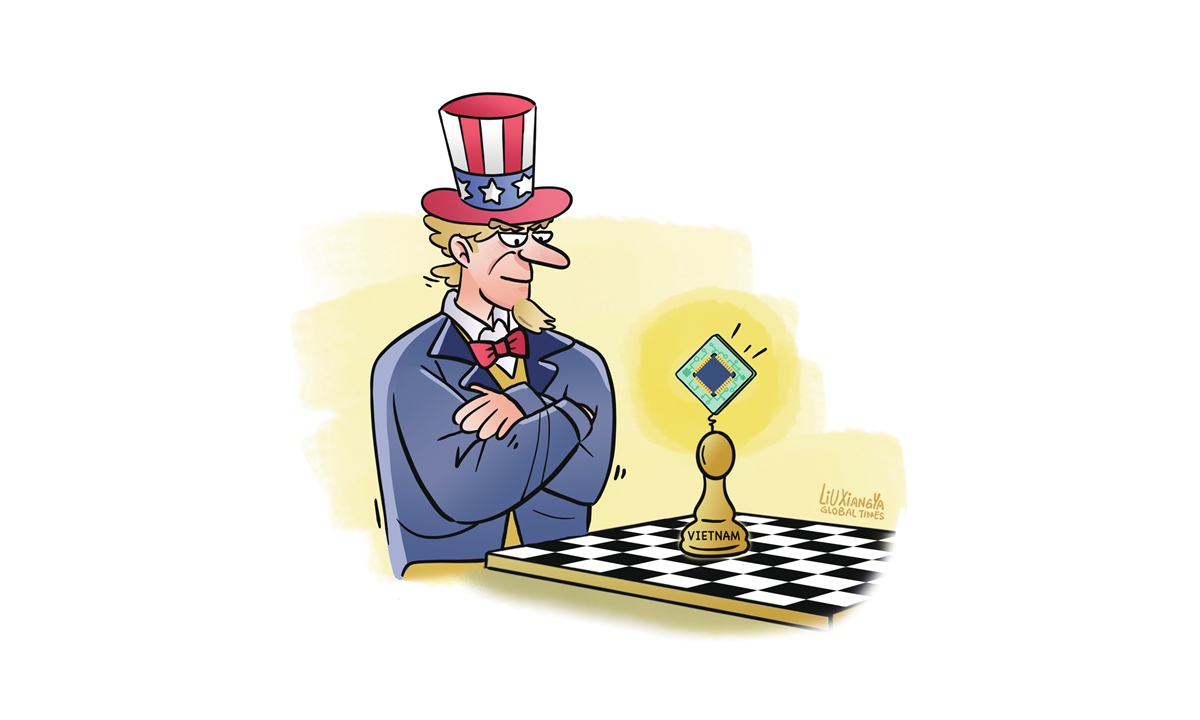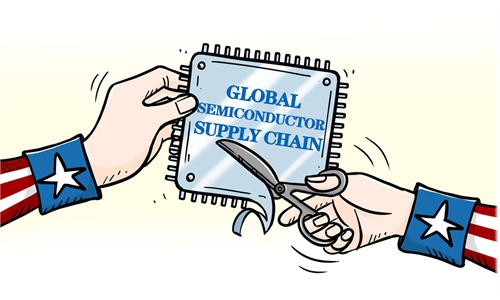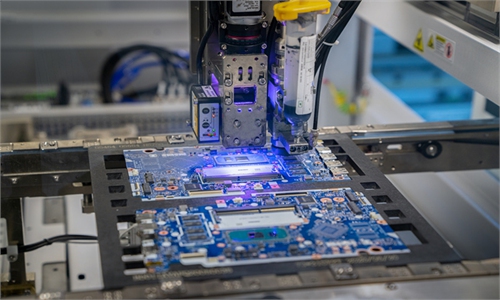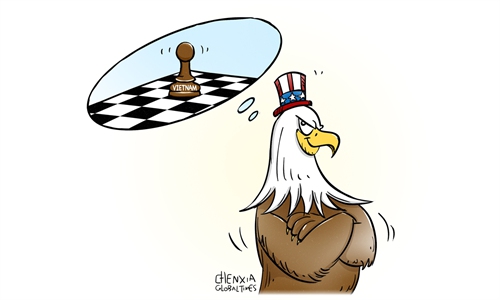
Illustration: Liu Xiangya/Global Times
Vietnam has solidified its position as an emerging chip manufacturing source in the Asia-Pacific region as Washington is seeking to strengthen its relationship with Hanoi and encourage the American chip manufacturers to invest in the Southeast Asian country. The impact of this development may exceed Washington's expectations.During his visit to the US, Vietnamese Prime Minister Pham Minh Chinh toured the headquarters of Nvidia and Synopsys, encouraging them and other US tech firms to invest further in the Southeast Asian country's semiconductor industry, Reuters reported on Tuesday.
Chinh's trip comes on the heels of a visit by US President Joe Biden to Hanoi earlier this month, during which the two countries announced plans to deepen cooperation in several areas, including chips and critical minerals.
Vietnam's semiconductor industry, bolstered by inbound foreign direct investment (FDI) from Western industry giants, has experienced significant growth in recent years. Media reports have revealed that the Southeast Asian country has become the third-largest chip exporter to the US in Asia.
As de-industrialization sweeps through the West, Vietnam's manufacturing sector has steadily expanded. As a result, demand for chips has increased, as semiconductors are crucial in the production of electronic products. It's only natural that Vietnam is strengthening its relations with the US and encouraging Western high-tech companies to invest further in the country. The sustainable development of Vietnam's semiconductor industry is a valuable asset to the Asian industrial chain, as long as Vietnam supports free trade and respects the interests of other countries in the industrial chain.
However, while Washington emphasizes technical cooperation with Hanoi, its true intention is to involve Vietnam in its strategy to contain China, which does not align with Vietnam's economic interests. Deep down, Vietnam desires to move closer to the US while maintaining some reservations, in order to maximize its own interests. Therefore, things may not be progressing in the direction expected by Washington.
Vietnam's chip industry dates to 1979, when the government established the Vietnam Semiconductor Z181 Factory. Although Vietnam's semiconductor industry has witnessed stable development in recent years, it is still heavily reliant on FDI, and its role in the supply chain is primarily limited to assembling and testing. Vietnam still has a long way to go in becoming an advanced chip-making economy. This implies that in the near future, Vietnam needs to further integrate into the regional supply chain to receive support for its semiconductor industries. Throughout this process, the industrial chain between China and Vietnam will not weaken, but rather strengthen.
China remains the world's largest chips market, and no firms are willing to separate from it. As a restructuring of the Asian industrial chain seems to have accelerated amid global economic uncertainty, some companies choose to pursue a "China plus one" strategy.
This business approach encourages investors to diversify their investments by not only investing in China but also opting for a more diverse portfolio through investments in a variety of Southeast and South Asian countries. Although Vietnam has received some semiconductor investments, these investors cannot afford to lose the Chinese market. This means economic exchanges between China and Vietnam will increase, which may be something Washington does not want to see.
While Vietnam is committed to attracting investment from Western semiconductor companies, the necessity of strengthening China-Vietnam industrial chain cooperation is also increasing. In fact, economic and trade cooperation between the two countries is constantly strengthening. Chinh, on Sunday, praised China's efforts to promote regional cooperation and common prosperity. The prime minister said that as the global economy slowly recovers, the need for ASEAN and China to strengthen trade and investment is greater than ever, according to the Xinhua News Agency.
Hopefully, the US' chip investment in Vietnam will be more focused on economic considerations rather than geopolitical ones. The goal of using Vietnam's chip industry to contain China is unlikely to be achieved.
The author is a reporter with the Global Times. bizopinion@globaltimes.com.cn



